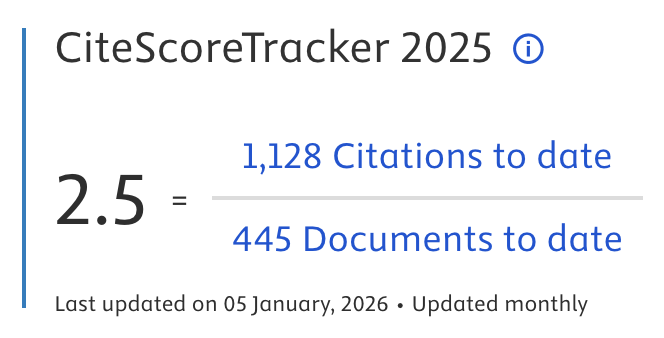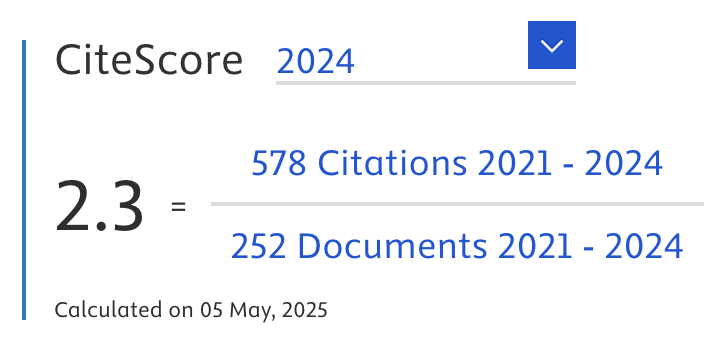Performance Fuzzy Decision Model for Evaluating Employees’ Work-from-Home Performance
Abstract
This study aims to identify key workplace environmental parameters and develop a Decision Support Model (DSM) to evaluate the performance of work-from-home (WFH). The methods utilized include Tsukamoto Fuzzy Logic and conventional techniques. Key parameters incorporated into the DSM-WFHP model include room temperature, internet speed, number of children, virtual office setup, and physical activity (sport). The research culminates in the DSM-WFHP model, which provides accurate assessments of WFH employee performance. Findings indicate that variations in these parameters significantly impact performance, with specific quantitative results demonstrating that optimal room temperature, high internet speed, fewer children present, an effective virtual office setup, and regular physical activity correlate with higher performance scores. Thus, this research concludes that the DSM-WFHP model effectively offers precise performance evaluation guidance for remote employees, making a valuable contribution to remote work management. With regards to the novelty of this study, this is the first time that the synergetic effect of multiple environmental factors has been incorporated into a comprehensive DSM.
Article Metrics
Abstract: 447 Viewers PDF: 99 ViewersKeywords
Full Text:
PDFRefbacks
- There are currently no refbacks.

Journal of Applied Data Sciences
| ISSN | : | 2723-6471 (Online) |
| Collaborated with | : | Computer Science and Systems Information Technology, King Abdulaziz University, Kingdom of Saudi Arabia. |
| Publisher | : | Bright Publisher |
| Website | : | http://bright-journal.org/JADS |
| : | taqwa@amikompurwokerto.ac.id (principal contact) | |
| support@bright-journal.org (technical issues) |
 This work is licensed under a Creative Commons Attribution-ShareAlike 4.0
This work is licensed under a Creative Commons Attribution-ShareAlike 4.0





.png)